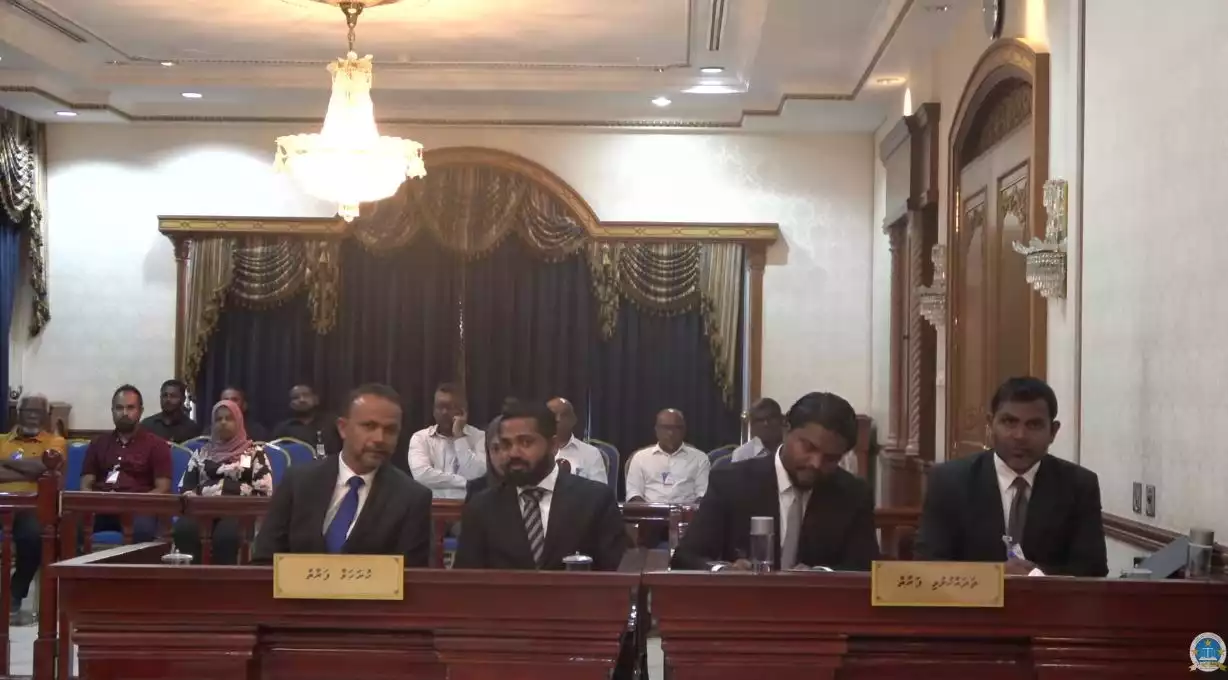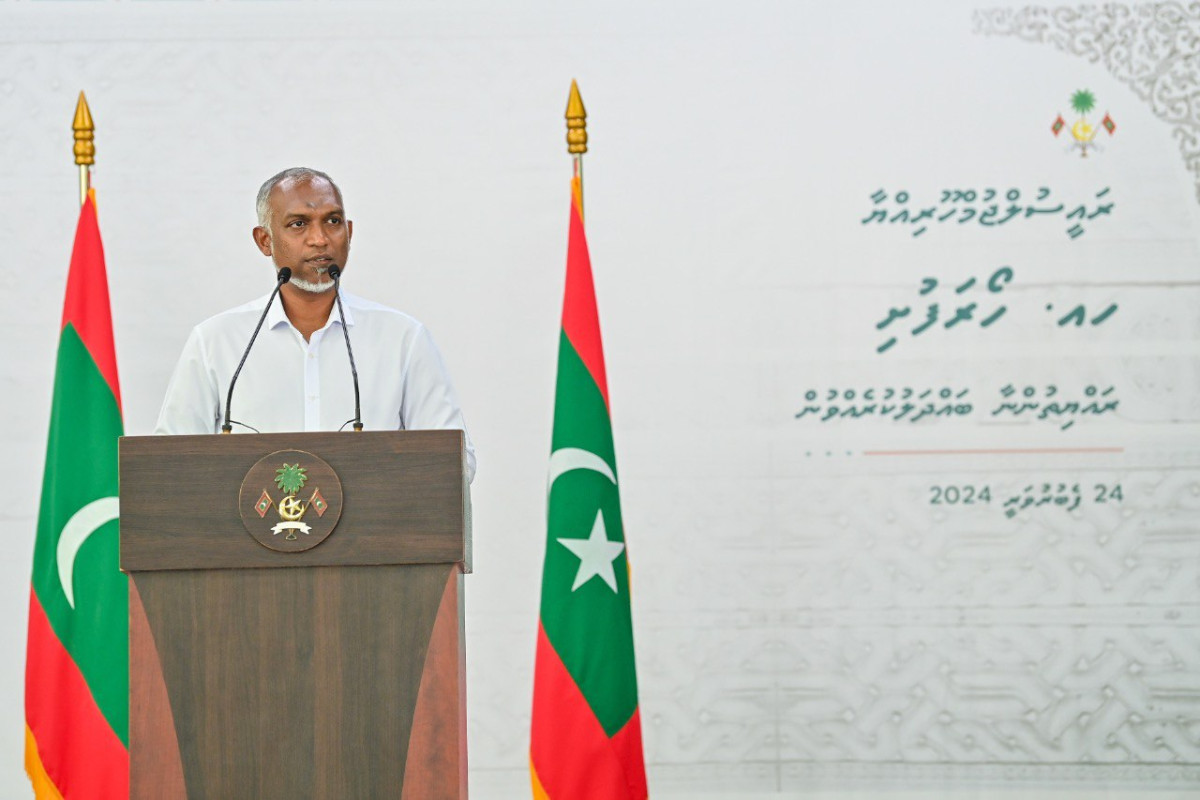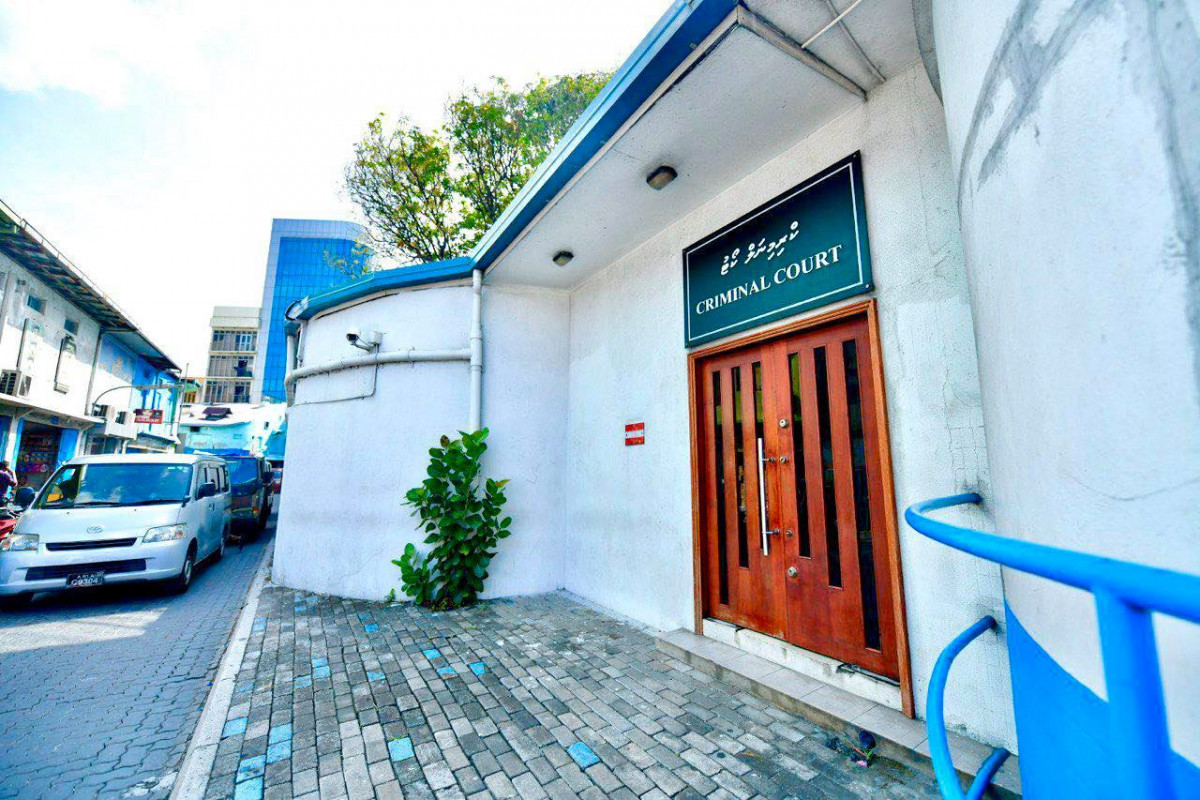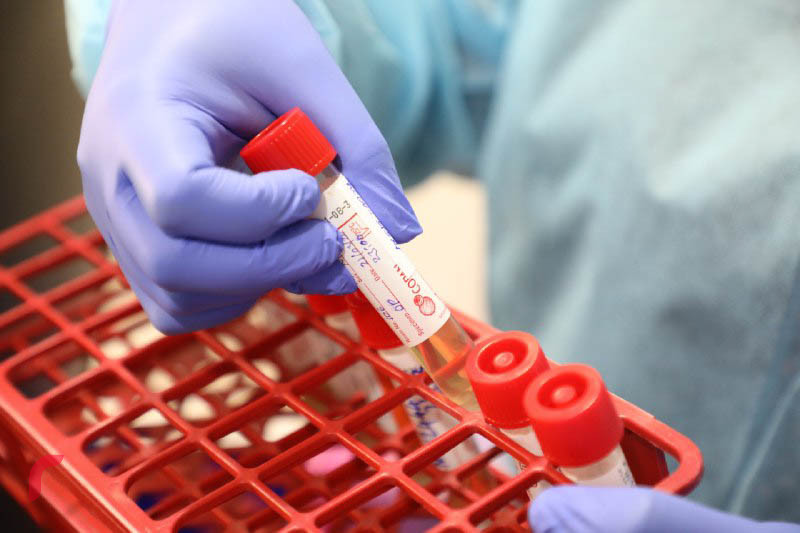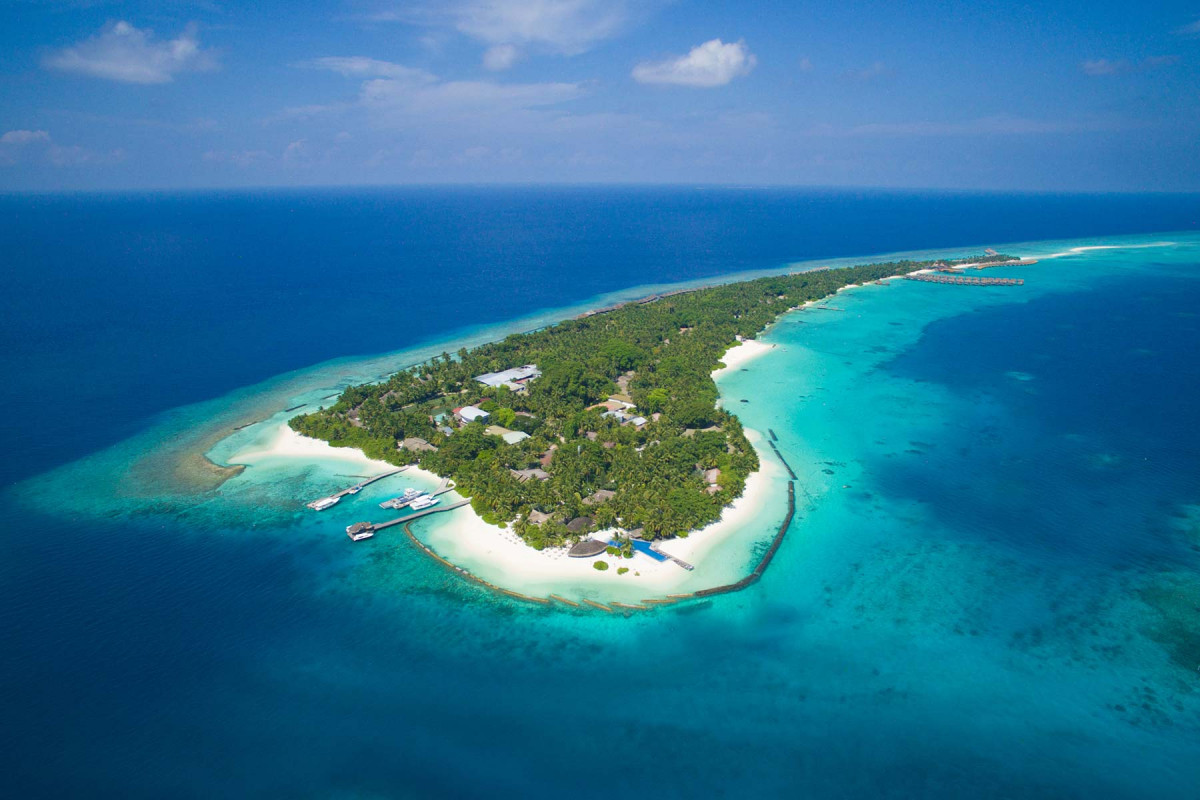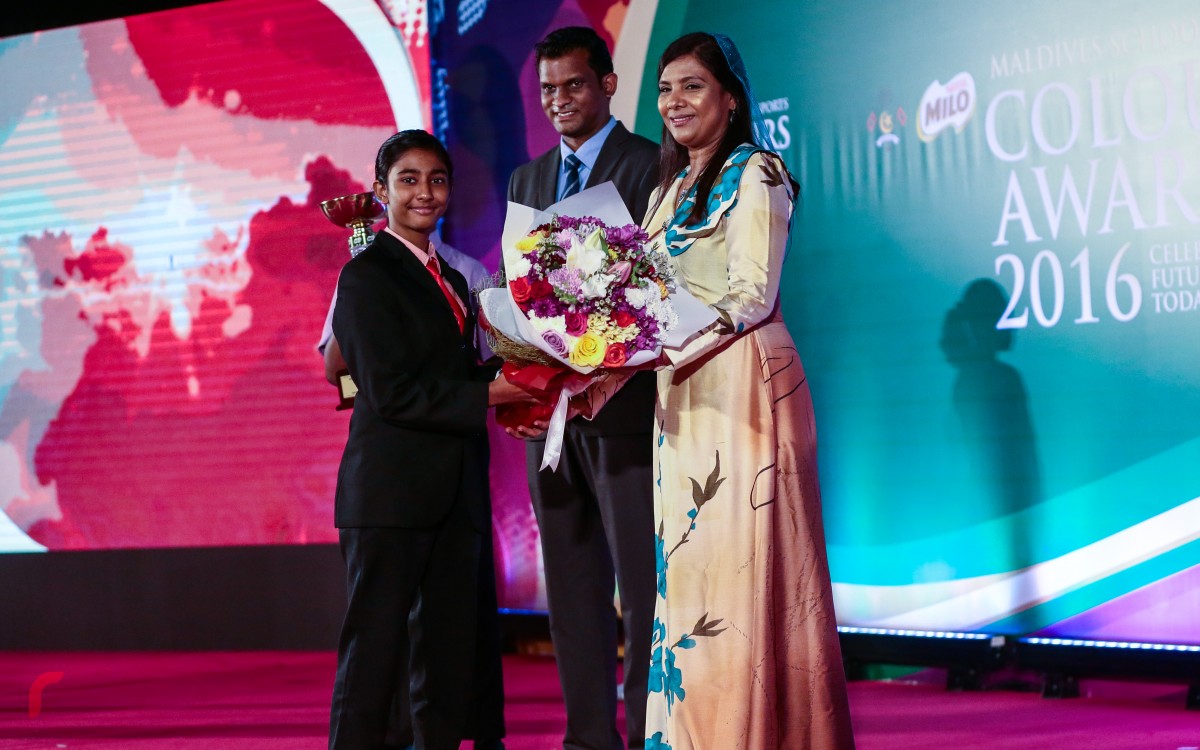Women lead Maldives' Covid-19 response to hopeful shore of immunization
Women leaders have always been paragons of national service for the Maldives in moments of emergency
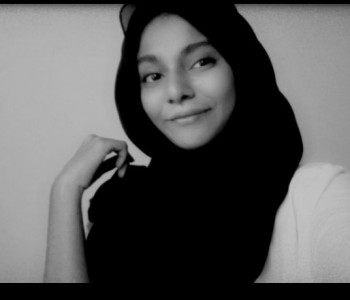
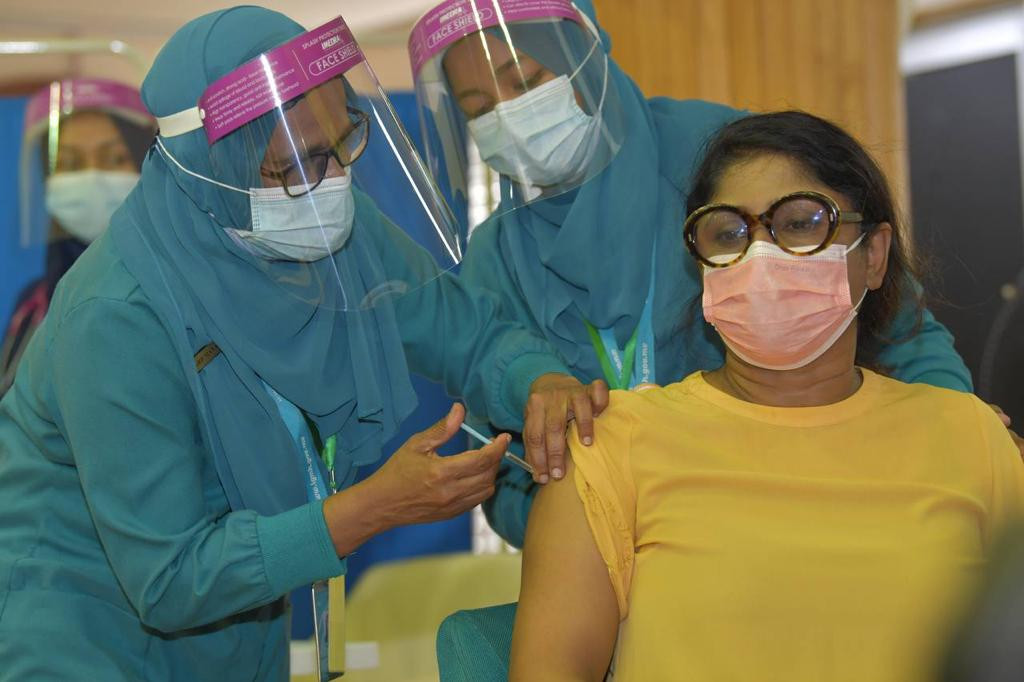
Chair of the National Emergency Operations Center and Defence Minister, Mariya Ahmed Didi receives first dose of Covishield vaccine on Monday
The Cholera outbreak of 1978 was one of the most harrowing national crises for the Maldives in recent years. In that year, Cholera swept through over a hundred islands from the north to the south of the country, leaving no atoll untouched by fear and devastation. There were much fewer foreigners and expat workers living in the Maldives at the time, and Maldivians were left to bear the brunt of a public health emergency at a time when access to resources was severely limited compared to now. However, as we always do, the citizens of Maldives rose above, driven by sheer grit, hard-work and a mode of thinking that placed national interests at the forefront of efforts being made to preserve the health and safety of citizens.
The unyielding endurance displayed by those Maldivians, battling a Cholera outbreak in citizens spread across geographically distanced islands, goes down in history as an invaluable national sacrifice. At the time, the person spearheading the governments response efforts against the outbreak had been Minister of Health Moomina Haleem, the first woman to ever be appointed to the Cabinet in Maldivian history.
Moomina Haleem was designated as Health Minister by President Ibrahim Nasir in the 1977, and went on to retain her position until the end of Nasir's term as president. This was the scene that was set, as the devastating wave of a Cholera outbreak broke on Maldivian shores in 1978.
Under Honourable Moomina Haleem's guidance as Minister of Health, women were empowered to learn, rise and lead within the health sector. Since that day 40 years ago, Maldivian women have continued to prove themselves again and again on an international level, as stellar illustrations of what exemplary service looks like in the social services and public health sector. Even now, as the whole world continues to battle the global Covid-19 pandemic, Maldivian woman stand at the frontlines of pandemic response in the country. With the Director General of Public Health Maimoona Aboobakur at the helm, women leaders, health service providers and public health officials continue to rally in exhaustive efforts to control the spread of Covid-19 in the nation.
On a global stage, sterling women leaders effortlessly hold the spotlight with remarkable accomplishments, more so than their male counterparts. As glass ceilings and discriminatory barriers are broken across borders, women leaders continue to make way for the kind of inclusive, adaptable and unapologetically progressive development the world has sorely lacked under the dominant patriarchy. As the Covid-19 pandemic sweeps through the world, nations with accomplished, unwavering women at the head of efforts to combat the infection have fared significantly better than those nations that do not, a fact made evident through hard data as the rest of the world watches in real-time.
Women leaders in the sectors of public health and governance in Maldives deserve unquestioned credit for the Maldives' Covid-19 success story. Almost a year to the day the first case of Covid-19 was discovered on home shores, the country has initiated a nationwide Covid-19 vaccination programme. The first person to receive the Covishield vaccine in the Maldives was Dr. Shiraanee Abdul Raheem, Resident Doctor at Indira Gandhi Memorial Hospital (IGMH).
Minister of Defense Mariya Ahmed Didi is the Chair of the National Emergency Operations Center (NEOC), the vessel through which professionals from different sectors have been collaborating to conduct pandemic response efforts in the country, guided by the sure hand of the Director General of Public Health Moomina Aboobakuru. Dr. Fathmath Nazla Rafeeq, Spokesperson for the HEOC, is now a familiar confidant of every person living in the Maldives, working tirelessly to ensure that the nation's Covid-19 response is being communicated effectively to the public.
Further, all medical officials involved in the vaccine administration process on Monday were all women.
Vaccination programmes need to exude a sense of security for it to be accepted by members of the public, especially in relation to an illness that has already proved capable of rendering even the most developed nations to its knees. In order to build that confidence, examples need to be set. Women in the Maldives have once again risen as paragons of national service as such examples, inspiring faith, trust and confidence in members of the public.
This is further proof that the only way forward, national emergency or not, is to empower and give opportunities to women who are traditionally sidelined across different sectors. To give them one chance is a gift we as a nation give to ourselves; women do, and will continue to do, all that needs to be done for the sake of the country, as symbols of national unity that galvanize citizens as they outperform all others by a mile and a half in securing the sails that will lead us out of crisis and into cooler, calmer waters.
